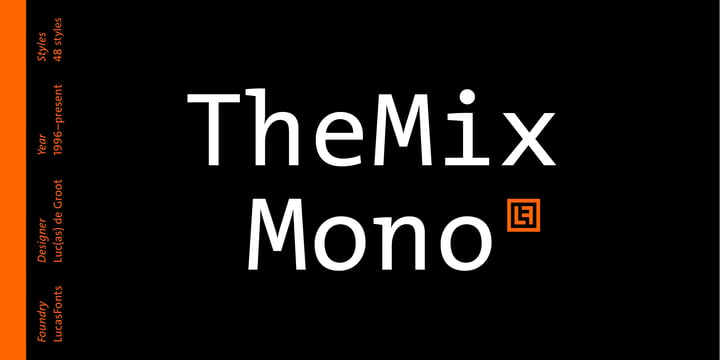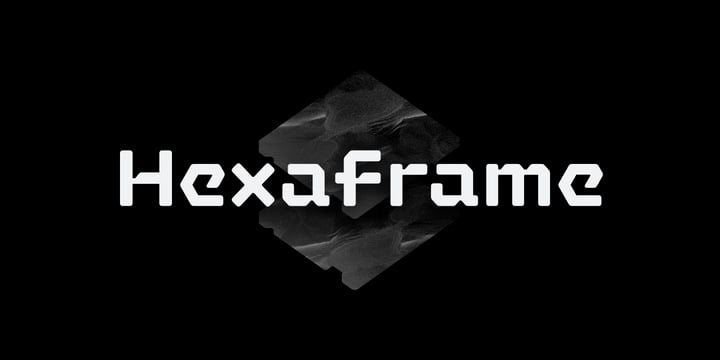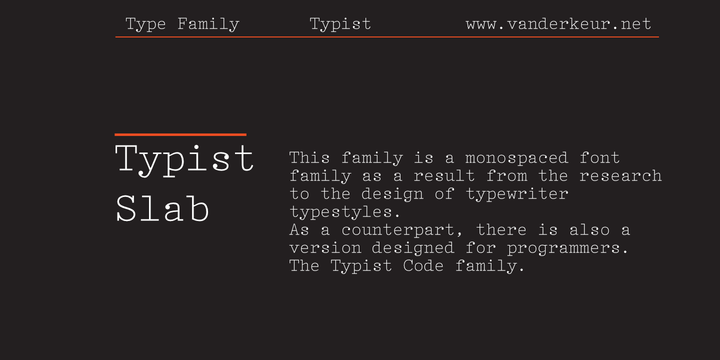
TheMix Mono is a monospaced version of TheMix.

Hexaframe CF evokes the awe and potential of of heavy machinery and robotics. Clad in tough polygons and rounded edges, Hexaframe is a perfect typeface for corporate identity, STEM toys, and user interface design.
Hexaframe CF pairs well with simple typefaces set in contrasting sizes, including Greycliff CF, Artifex CF, and Visby CF.
All typefaces from Connary Fagen include free updates, including new features, and free technical support.

Mistafelga Font Family was designed by Tezar Tantular, and published by Keristyper Studio. Mistafelga contains 1 styles and f...